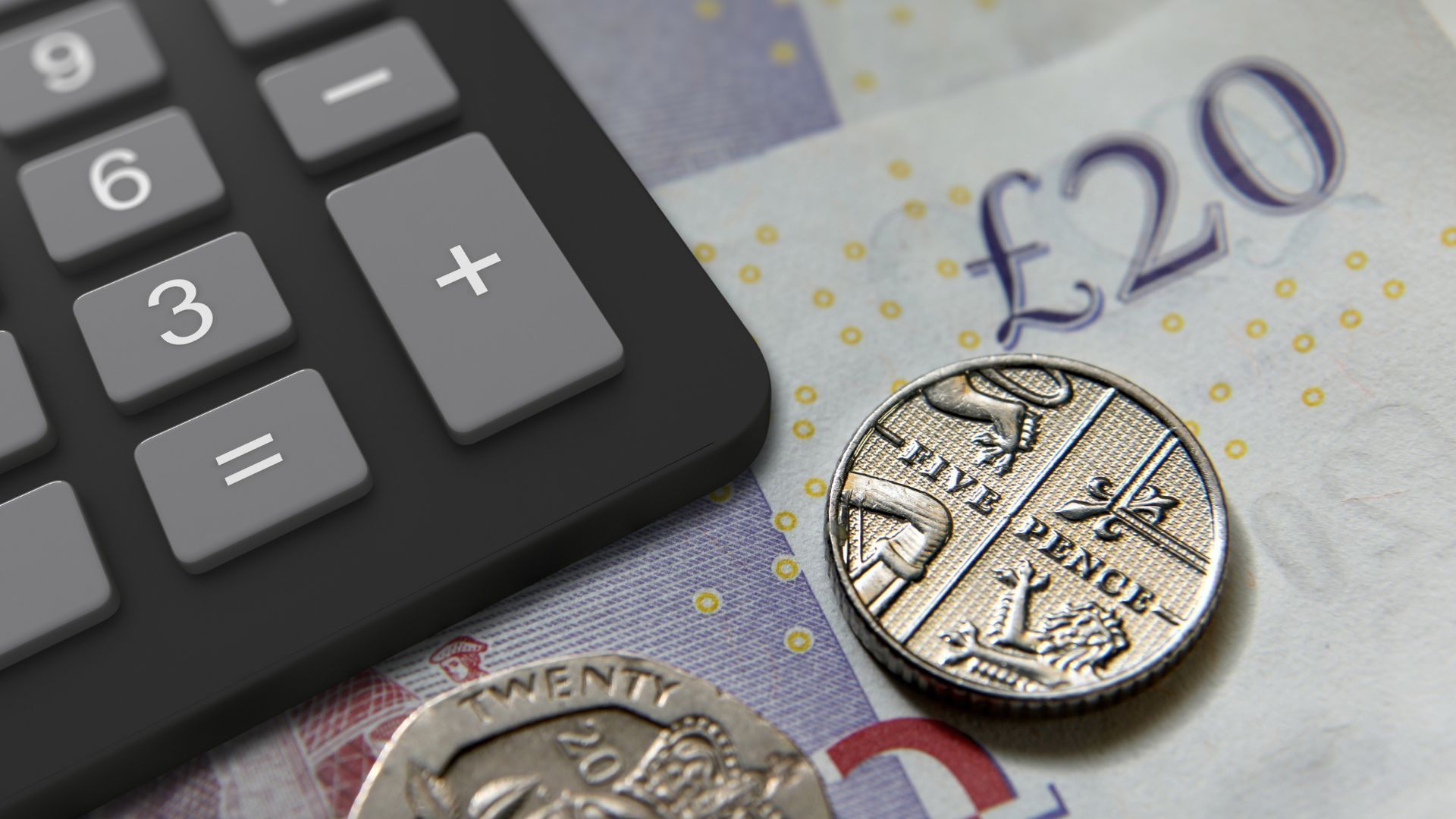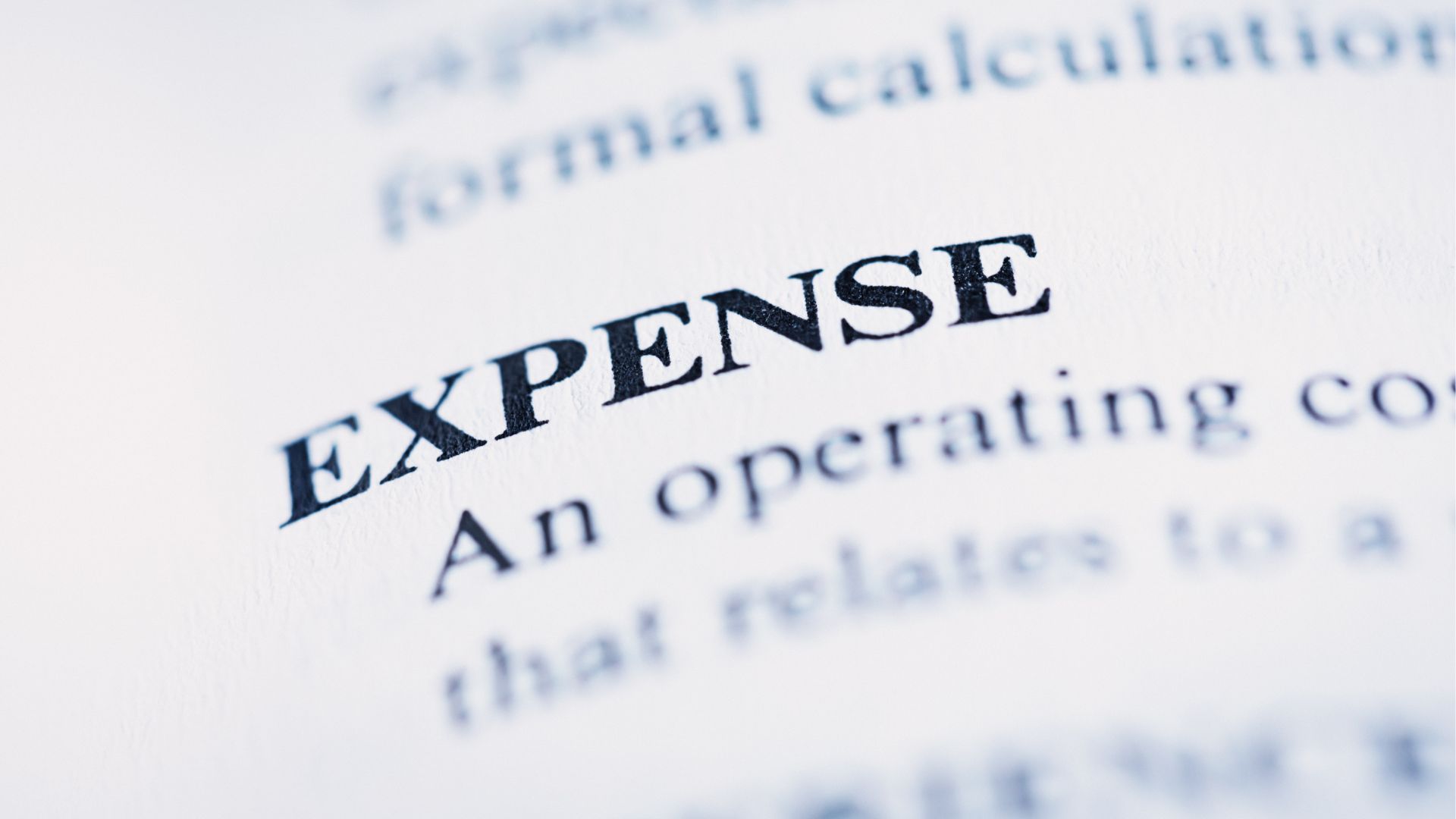Personal vs Business Finances
How to separate Personal and Business Finances For Limited Company
There are a lot of benefits that come with setting up a limited company for contracting; you’re protected by limited liability, it makes your business look professional, you can claim limited company expenses, and you can pay yourself in a cost effective, tax-reduced way. So, it’s easy to see why setting up a limited company is something that a growing number of sole contractors and freelancers do. However, to get the most out of being a limited company contractor and to be able to claim the right limited company expenses, you need to separate your personal and business finances.
At Go Limited, we encourage limited company contractors to keep personal and business finances apart as much as possible. Regardless of the work you do or the industry you’re in - or even how long you’ve been a limited company contractor for - keeping your personal and business finances separate is key. Otherwise, you risk running into mixed up transactions, complicated outgoings and not claiming all of the limited company expenses you have.
You have 45 days to return items for a full refund, with or without a receipt. Items must still have their original tags.
You have 45 days to return items for a full refund, with or without a receipt. Items must still have their original tags.
You have 45 days to return items for a full refund, with or without a receipt. Items must still have their original tags.

What Does it Mean to Keep Your Limited Company Finances Separate?
Keeping personal and business finances separate means making sure that all financial transactions related to your limited company are clearly different from your personal finances. This involves using a dedicated business bank account for all business related income and expenses, rather than mixing them with your personal accounts.
When clients and customers make payments, they should be deposited directly into your limited company account, and all business expenses - such as office supplies, raw materials, software subscriptions and travel costs - should be paid from the same account. This separation helps you to maintain accurate records, simplifies accounting and ensures compliance with tax regulations.
Plus, keeping outgoing payments separate means paying yourself a salary or dividends from the business, rather than using business funds for personal expenses. For example, instead of using your business card for grocery shopping, you should transfer your salary to your personal account and use that. The same goes for money used for socialising, paying for holidays, home improvements and anything else you might pay for as part of day-to-day life. Tracking expenses properly ensures that only legitimate business costs are deducted when calculating your tax liabilities, reducing the risk of errors or penalties.
5 Reasons Limited Company Contractors Should Keep Personal and Business Finances Separate
There are a number of reasons to keep your personal and business finances separate as a limited company contractor, such as:
- It Provides Legal Protection - When you’re setting up your own limited company, you have the benefit of legal protection. But, if you combine your personal and business finances, you run the risk of confusing everything, and compromising that protection. By keeping your personal and business finances apart, you maintain a legal separation between the two, keeping your personal finances and assets safe, should any business-related legal issues arise.
- It Simplifies Limited Company Tax - There’s a lot that goes into limited company tax reporting, but keeping your personal and business finances separate helps. When you have a business account dedicated to your limited company expenses and incoming payments, it’s a lot easier to find allowable expenses for your limited company. This ensures compliance with tax regulations and reduces the risk of a mistake being made when you submit your tax return.
- It Makes Financial Tracking Easier - One of the main benefits of having a limited company for contractors is improved finances, but that’s only the case if you track everything correctly. When you keep your personal and business finances separate, it’s a lot easier to track the funds flowing in and out of the business. You’ll know what you’re spending and your limited company expenses, enabling you to make informed decisions about your finances. If you’re spending too much, you’ll know to cut back. If you have money to invest, you’ll know it’s available. This is a lot harder to do when your business finances are mixed in with your personal finances.
- It Makes You Look Professional and Credible - There are a lot of businesses out there, so it’s important that your limited company for contracting stands out for the right reasons. You need your business to be seen as professional, credible, reliable and trustworthy; you need to showcase that you’re an industry authority, that you’re a limited company contractor who knows what they’re doing. This is a lot easier when you have a dedicated business bank account. Clients, customers and suppliers are more likely to trust transactions done through a business account that has your limited company's name, rather than a personal account.
- It’s a Way to Build Business Credit - You’re bound to keep on top of your personal credit score, and you know the benefits of having a score that’s on the higher end, but a lot of limited company contractors forget that business credit is just as important. When you have separate accounts, it’s a lot easier to establish a credit history for your business, which is key for securing financing or favourable terms with suppliers in the future. If you want to take out a business loan or a business credit card, having a strong business credit score is vital.

Why Limited Company Expenses Need to Be Tracked
As we mentioned above, one of the key reasons to separate your personal and business finances is for limited company expenses. There are a lot of allowable expenses that you can claim as a limited company contractor, but you need to have ‘proof’ of the expense, showing how much was paid and that it was solely for business purposes. This can be tricky if all of your spending is grouped together, but separating everything makes tracking a lot easier.
- Limited Company Tax Deductions - Proper documentation of limited company expenses ensures you can claim all of your eligible deductions, potentially reducing your business’ taxable income.
- Financial Management - Understanding where your money goes helps with budgeting and financial planning, allowing for better cash flow management.
- Regulatory Compliance - Maintaining detailed records of limited company expenses is a legal requirement, ensuring transparency and accountability in your financial reporting. If HMRC investigates your claims, you’ll need to be able to prove that you’ve complied with regulations.
How to Separate Personal and Limited Company Finances
A lot of contractors know the ins and outs of setting up a limited company, but they’re not sure what to do when it comes to separating personal and limited company finances. Below, we’ve taken a look at how to separate personal and limited company finances, ensuring that your limited company expenses and tax liabilities are clear, and your personal finances are protected.
- Open a Business Bank Account - Unsurprisingly, opening a business bank account is the best place to start. By setting up a limited company bank account, you’ll be able to simplify the tracking of your business’ income and expenses, whilst also reinforcing the legal separation between you and your business.
- Use a Business Credit Card - Using a business credit card for your limited company expenses further separates your personal and business spending, making accounting more straightforward. If you use a personal credit card for business expenses, you might struggle to keep track of which payments were made for the business, and which were made for you personally.
- Implement Accounting Software - Implementing dedicated accounting software can automate the tracking of income and expenses for your limited company, as well as generating financial reports and assisting in submitting tax returns. This makes it a lot easier for you to keep on top of your business’ finances. You can sit back and focus on other aspects of running a business, knowing that your accounting software is tracking everything going in and out of the business.
- Set Up a Salary or Dividends
- When you set up a limited company for contracting, you can organise paying yourself a regular salary and dividend payments. This helps to maintain a clear boundary between your personal and business finances. You can pay yourself a salary or dividends from your business account to your personal account, and know exactly what you’ve earned. This helps to clearly show what’s yours to spend, and what’s to be used by the business.

FAQ
Why is it important to separate personal and business finances?
Separating personal and business finances helps maintain legal and financial clarity, simplifies accounting and tax reporting, and protects personal assets in case of business liabilities. It also ensures compliance with HMRC and company law.
Do I need a separate bank account for my limited company?
Yes, a limited company is a separate legal entity, so it must have its own business bank account to manage company income and expenses properly.
Can I use my personal bank account for business transactions?
No, this can create accounting confusion and legal risks. All company-related transactions should go through the company’s business bank account.
How do I pay myself from my limited company?
As a director, you can pay yourself through a salary via PAYE, dividends (if the company makes a profit), or a combination of both. It’s best to consult an accountant to optimise tax efficiency.
What records should I keep to separate finances?
You should maintain clear records of business transactions, including invoices, receipts, payroll, tax payments, and bank statements. Using accounting software can help manage this effectively.
Can I lend money to my company or borrow from it?
Yes, but it must be properly documented. A loan to your company should be recorded as a director’s loan, and borrowing from your company could have tax implications. Always seek professional advice.
How can I track business expenses separately?
Use a company debit or credit card for all business expenses and keep detailed records. Avoid using personal funds, but if you must, reimburse yourself through the business with proper documentation.
How do I handle tax obligations for my limited company?
Your company must file Corporation Tax returns, VAT (if applicable), and payroll taxes if you employ staff. Keeping finances separate makes tax reporting easier and helps avoid penalties.
What happens if I mix personal and business finances?
It can lead to accounting issues, difficulty in tax filing, legal risks, and potential fines. It may also blur the distinction between you and your company, undermining limited liability protection.
Should I use accounting software or hire an accountant?
Both can be beneficial. Accounting software like Xero, QuickBooks, or FreeAgent can help track finances, but an accountant can provide expert guidance, ensure compliance, and optimise tax efficiency.

At Go Limited, we know there’s a lot to think about as a limited company contractor, but don’t overlook the benefits of keeping your personal and business finances separate. In fact, it’s one of the first things the Go Limited experts recommend that you do. It’ll work to your advantage as an individual, as well as your advantage as a business owner. You’ll find it a lot easier to manage your business and personal spending when you can clearly see what belongs where, what has been spent and why. From simplifying limited company expenses and tax filing, to helping you to see how much of your salary you have left at the end of the month, all limited company contractors benefit from financial separation.










